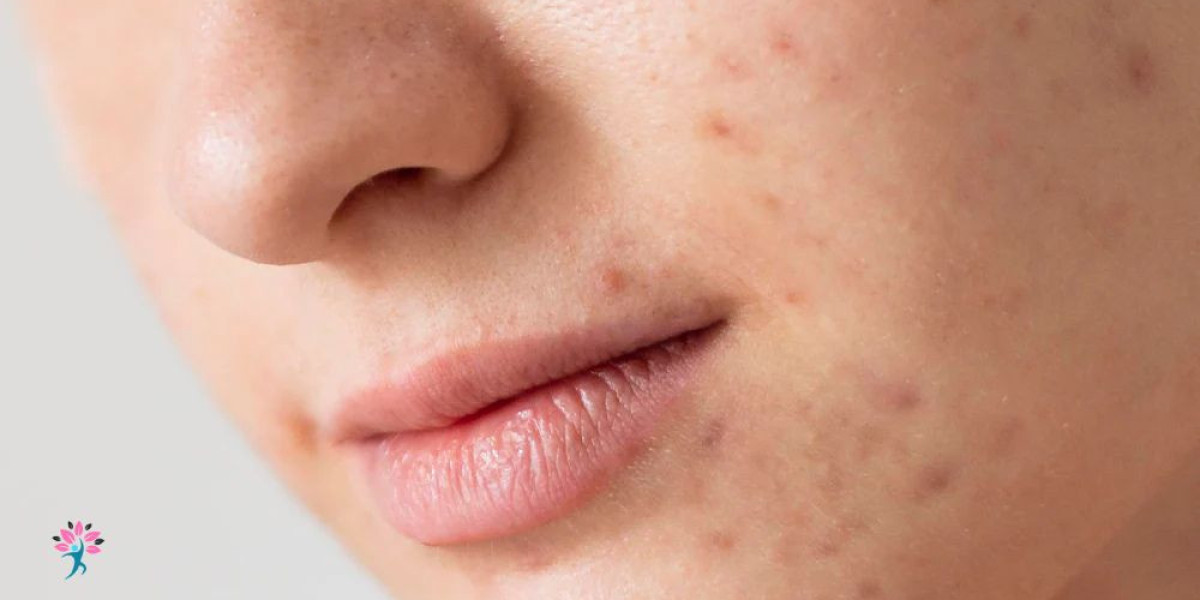How to Prevent Acne with Proper Hygiene: Essential Skincare Tips
Acne is a common skin condition that affects millions of people worldwide. Acne occurs when hair follicles become clogged with oil, dead skin cells, and sometimes bacteria. While acne is often linked to hormonal changes, stress, or diet, maintaining good hygiene is crucial in preventing and managing breakouts. In this article, we’ll explore essential skincare tips to help keep your skin clean and acne-free.
1. Cleansing: The Foundation of Good Hygiene
The first and most important step in preventing acne is to cleanse your skin properly. Cleansing helps remove dirt, oil, and impurities that accumulate on your skin throughout the day.
- Choose the Right Cleanser: Use a gentle, non-comedogenic cleanser that suits your skin type (oily, dry, or combination). Avoid harsh scrubs or overly drying products, as they can irritate the skin and worsen acne.
- Cleanse Twice a Day: Wash your face in the morning to remove oils produced overnight, and again in the evening to eliminate dirt, oil, and makeup. This prevents pores from becoming clogged.
- Avoid Over-Cleansing: Over-washing can strip your skin of natural oils, leading to increased oil production, which can make acne worse.
2. Exfoliation: Clearing Dead Skin Cells
Exfoliating your skin helps remove dead skin cells, preventing them from blocking pores. However, it's important to exfoliate correctly to avoid irritation.
- Use Gentle Exfoliants: Opt for chemical exfoliants like salicylic acid or glycolic acid, which gently exfoliate the skin without causing physical damage.
- Exfoliate 1-2 Times a Week: Over-exfoliating can make your skin more sensitive and prone to breakouts. Stick to a routine of once or twice a week.
- Don’t Scrub Aggressively: Avoid harsh scrubbing, which can damage the skin and lead to inflammation, potentially triggering more acne.
3. Moisturizing: Hydration is Key
Even if you have oily skin, moisturizing is essential. Dehydrated skin can lead to an overproduction of oil, which can clog pores and cause acne.
- Choose Oil-Free Moisturizers: Look for lightweight, non-comedogenic moisturizers that won’t clog your pores. Gel-based moisturizers are a good option for oily skin.
- Hydrate Daily: Apply moisturizer after cleansing to lock in hydration and maintain the skin’s natural barrier. This helps your skin stay balanced.
4. Hands Off: Avoid Touching Your Face
One of the easiest ways to spread acne-causing bacteria is by touching your face. Our hands carry oils, dirt, and germs that can transfer to the skin when we touch our faces.
- Keep Your Hands Clean: Wash your hands regularly, especially before touching your face.
- Avoid Popping Pimples: Picking or squeezing pimples can introduce bacteria and increase the risk of scarring. Let your acne heal naturally.
5. Change Pillowcases and Towels Regularly
Bacteria, oils, and dead skin cells can accumulate on pillowcases and towels, contributing to acne flare-ups.
- Wash Pillowcases Weekly: Change your pillowcase at least once a week to prevent bacteria buildup. Consider using pillowcases made of materials that are less likely to trap oils, such as silk or satin.
- Use Clean Towels: Always use a fresh towel to dry your face and body. Reusing towels can transfer oils and bacteria back onto your skin.
6. Diet and Hydration
What you eat can affect your skin. While hygiene plays a significant role in acne prevention, diet also influences the appearance of your skin.
- Stay Hydrated: Drink plenty of water throughout the day to keep your skin hydrated and flush out toxins.
- Limit Sugary and Processed Foods: Diets high in refined sugars and processed foods may increase the likelihood of breakouts. Aim for a balanced diet rich in fruits, vegetables, and whole grains.
7. Avoid Stress
Stress triggers hormonal changes that can lead to acne flare-ups. Managing stress is essential for overall skin health.
- Practice Stress-Relief Techniques: Activities like yoga, meditation, or deep breathing exercises can help reduce stress levels.
- Get Enough Sleep: Aim for 7-9 hours of sleep per night. Sleep allows the skin to repair itself, and poor sleep can increase acne-causing inflammation.
8. Choose Non-Comedogenic Products
Using makeup and skincare products that are labeled “non-comedogenic” means they are less likely to clog your pores.
- Makeup Choices: Choose oil-free foundations and concealers. Always remove makeup thoroughly at the end of the day to avoid pore blockages.
- Skincare Products: Look for skincare products designed for acne-prone skin, ensuring they won't contribute to breakouts.
9. Avoid Smoking and Excessive Alcohol
Both smoking and excessive alcohol consumption can negatively impact your skin’s health, potentially triggering or worsening acne.
- Quit Smoking: Smoking reduces blood flow to the skin and impairs its ability to repair itself, leading to more breakouts.
- Limit Alcohol Intake: Alcohol dehydrates the skin and can lead to hormonal imbalances that may trigger acne.
10. Seek Professional Help if Necessary
If your acne persists despite maintaining a good skincare routine, it might be time to seek professional help.
- Dermatologist Consultation: A dermatologist can recommend treatments such as topical medications, oral antibiotics, or even acne treatments like chemical peels or light therapy.
- Medication: For severe acne, prescription treatments like retinoids or antibiotics may be necessary to manage the condition effectively.
Conclusion
Preventing acne requires a combination of proper hygiene, a consistent skincare routine, and lifestyle changes. By cleansing your skin regularly, avoiding excess oil buildup, and taking care of your overall health, you can significantly reduce the chances of developing acne. Remember, consistency is key, and results will take time. If acne persists, don’t hesitate to consult a dermatologist for personalized treatment options.
With the right approach to hygiene and skincare, you can maintain clear and healthy skin.
This shorter version captures the main points of how hygiene and skincare contribute to acne prevention. Would you like further details or help with anything else?For more skincare tips and advice, visit our website at https://venzec.icu and explore our wide range of articles on healthy living and beauty.







